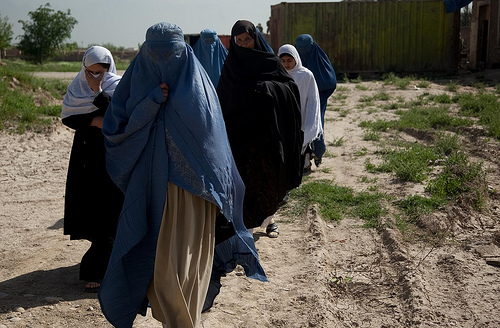An Afterword for NO ONE SEES ME 'TIL I FALL
/ Normally, Skeleton Keys blog posts are produced similarly to our books—I write the post and Ann edits it. But this week we’ve switched places. Following the publication of NO ONE SEES ME ‘TIL I FALL, Ann wanted to write an afterward for the novella to bring to light the stark reality of what life is like for Afghani women in their supposedly ‘modern’ world. I agreed that it would be a meaningful addition, but I also wanted to share it here on the blog so it might reach a larger audience. For those who have not read NO ONE SEES ME ‘TIL I FALL, Hoor is the victim for whom Matt, Leigh, and the team are determined to find justice.
Normally, Skeleton Keys blog posts are produced similarly to our books—I write the post and Ann edits it. But this week we’ve switched places. Following the publication of NO ONE SEES ME ‘TIL I FALL, Ann wanted to write an afterward for the novella to bring to light the stark reality of what life is like for Afghani women in their supposedly ‘modern’ world. I agreed that it would be a meaningful addition, but I also wanted to share it here on the blog so it might reach a larger audience. For those who have not read NO ONE SEES ME ‘TIL I FALL, Hoor is the victim for whom Matt, Leigh, and the team are determined to find justice.
After writing Hoor’s story in America, we decided to examine the current situation of Afghani women 12 years after the post-9/11 US-led invasion of Afghanistan.
In December 2011, 13 year-old Sahar Gul was discovered locked in her in-laws’ basement in Baghlan. Five months earlier, she had been purchased from her stepbrother for $5000 and forced into an illegal marriage. When she refused to consummate the marriage or work as a prostitute, her new family burned her with hot wires, tore out her fingernails, pinched and twisted her skin with pliers, and starved her. When found, she was barely clinging to life.
Lawyers from the organization Women for Afghan Women (WAW) obtained convictions of attempted murder for Sahar Gul’s mother-in-law, sister-in-law, and father-in-law—each was sentenced to 10 years in prison. Those verdicts were upheld on appeal in May 2012.
In June 2013, the Supreme Court of Afghanistan sent the case back to the appeals court, stating that the torture inflicted did not rise to the level of attempted murder and should only have been prosecuted as assault. The appeals court agreed, overturned the convictions, and released all three defendants in early July. That same week, Afghan President Hamid Karzai appointed five new commissioners to the government’s Independent Human Rights Commission. One of his new appointees was a mullah, an Islamic scholar, and former Taliban government official who was detained by the American military at its Bagram prison for three years.
In 2009, the Elimination of Violence Against Women law (EVAW) was implemented by presidential decree. It bans twenty-two harmful practices against women and girls—including rape, physical violence, forced or child marriage, and the denial of rights to education or work. At that time, a U.N. panel reported that an estimated 70–80% of all rural marriages were forced, and nearly 60% occurred before the woman reached the legal age of 16 years.
Between October 2012 and September 2013, 650 incidents of violence against women and girls were reported in 18 Afghan provinces by police and prosecutors, an increase of 28% over the previous year. But only 109 of those incidents were prosecuted under EVAW—a 2% increase over the previous reporting period. During the same time period, however, the Afghan Department of Women’s Affairs recorded an additional 1,019 incidents of violence. This suggests that many cases of violence against women are either unreported to police or adjudicated by a jirga—an assembly of local elders who act as informal dispute-resolution mechanisms in the absence of a formal justice system. In most cases women are returned to their marital homes.
Women and girls who run away from home to flee domestic abuse are sometimes charged with the crime of “attempted zina”. Zina is an Arabic term referring to the prohibition under Shari’a law of engaging in sexual intercourse outside of marriage—a Hudood crime for which punishment is mandatory. Without proof of fornication, zina becomes a Ta’zir crime where arrest and prosecution occurs based upon presumed intent. Local police and judges in some rural provinces continue to imprison women for this crime unless they can prove they fled home to escape violence and took refuge with a relative or in an approved Department of Women’s Affairs shelter.
In May 2013 the Afghan parliament held a debate where portions of the EWAW law—specifically the bans on child and forced marriage, as well as restrictions to female health care and education—were criticized as “un-Islamic”. Although signed by President Hamid Karzai, EWAW has never been ratified by the Afghani parliament. In fall of 2013, the lower house of parliament passed a draft criminal-procedure code barring a female victim’s own relatives from testifying in a criminal case dealing with violence against her, making the prosecution of domestic violence against Afghan women virtually impossible. As of December 2013, the draft code is still pending a vote in the upper house of parliament.
REFERENCES:
Graham Bowley. In-Laws Sentenced in Afghan Girl’s Torture Case. New York Times. 4 May 2012. http://www.nytimes.com/2012/05/05/world/asia/in-laws-sentenced-in-sahar-gul-torture-case-in-afghanistan.html
Graham Bowley. Wed and Tortured at 13, Afghan Girl Finds Rare Justice. New York Times. 11 Aug 2012. http://www.nytimes.com/2012/08/12/world/asia/wed-and-tortured-at-13-afghan-girl-finds-rare-justice.html?pagewanted=all
Rod Nordland. Critics Question Karzai Choices for Human Rights Panel. New York Times. 1 July 2013. http://www.nytimes.com/2013/07/02/world/asia/karzai-choices-for-afghan-human-rights-panel-raise-questions.html
Matther Rosenberg and Jawad Sukhanyar. Afghan Court Reverses Convictions in Torture of Girl. New York Times. 3 July 2013. http://www.nytimes.com/2013/07/04/world/asia/afghan-court-reverses-conviction-in-torture-of-young-woman.html?_r=0
Marisa Taylor. Afghan Law barring violence against women stalls, UN says. Al Jazeera America. 8 Dec 2013. http://america.aljazeera.com/articles/2013/12/8/afghan-law-barringviolenceagainstwomenstallsunsays.html
United Nations Assistance Mission in Afghanistan and United Nations Office of the High Commissioner for Human Rights. A Way to Go: An Update on Implementation of the Law on Elimination of Violence against Women in Afghanistan. Kabul, Afghanistan December 2013. http://unama.unmissions.org/Portals/UNAMA/Documents/UNAMA%20REPORT%20on%20EVAW%20LAW_8%20December%202013.pdf
Manizha Naderi. World must stay engaged in Afghanistan, or hard-won progress will be erased. Women for Afghan Women. 17 Dec 2013. http://www.trust.org/item/20131217101107-37h5z/
Photo credit: isafmedia



 COMPLETE!
COMPLETE! Planning
Planning